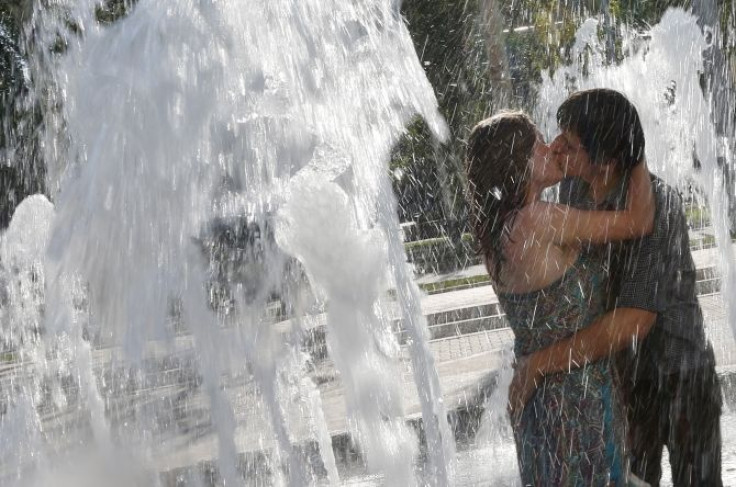Mono, 'The Kissing Disease', Really Is Spread Primarily Through Kissing

Mono has been dubbed the "kissing disease" by many a student. However, according to one study, the illness may truly live up to its name. In a study conducted by researchers at the University of Minnesota Medical School, researchers found that deep kissing was the only risk factor that enhanced a student's likelihood of contracting the disease.
Mono, short for mononucleosis, is caused by the Epstein-Barr virus, with symptoms including decreased appetite, fatigue, fever, headache, sore throat and swollen tonsils. It is spread through contact with an infected person's saliva, whether through a cough, sneeze, or sharing food with a person. It is less contagious than the common cold, however. A significant portion of people are exposed to the virus before adulthood and develop immunity to it, though some may never have exhibited symptoms at all.
The study tracked 546 college students from their freshman to senior year. About 63 percent of the students had antibodies for the virus in their blood, indicating that they had already been exposed to the disease. The other 143 students returned to the health center about every eight weeks for two years in order to test whether they had the disease.
In total, 66 came down with mono, with 59 showing symptoms. They were sick for an average of 17 days, though they were contagious for about five months. Unsurprisingly, most students who came down with mono did so during their freshman year, with 26 cases per 100 people. During the other three years, that number fell to 10 cases per 100 people.
Researchers found that students who reported having engaged in deep kissing, whether or not it was tied to sex, were more likely to contract mononucleosis than students who did not kiss or have sex. Researchers also examined other factors, like diet and the amount of exercise that a student performed, but none of the other factors affected a student's risk for contracting the illness.
The study was published in the Journal of Infectious Diseases.



























